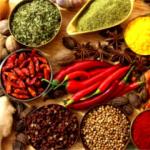During menstruation, women experience many unpleasant sensations: cramps, bloating, constipation, headaches and, of course, mood swings. As you watch a loved one menstruate, you may feel there is nothing you can do to help. But in fact, there are some things you can do to help a woman feel better. Start by helping relieve physical symptoms by purchasing pain relievers and fiber-rich foods at the pharmacy. Then support the woman emotionally and help her around the house.
Steps
Help relieve physical symptoms
- She may take 400 mg ibuprofen (or 600 mg aspirin) every 4 to 6 hours as needed.
-
Offer her a heating pad. If your girlfriend/wife prefers natural methods of relieving her symptoms, give her a filled heating pad to place on her lower abdomen to relieve cramps. You can buy several disposable heating pads at the pharmacy, or make your own heating pad by filling a sock with rice and tying the free end.
- Microwave the rice-filled sock (1-2 minutes).
- Homemade heating pads should not be left on for more than 30 minutes, but disposable heating pads sold in pharmacies can be left on for up to 8 hours.
-
Buy fiber-rich foods. Sometimes women suffer from constipation during menstruation, so prepare high-fiber foods for her in advance. Examples include foods such as raspberries, pears, broccoli, lentils, brown rice and whole grains. Don't force her to eat everything at once if she doesn't feel like it. If she prefers foods rich in complex carbohydrates, buy her whole grain waffles with sliced fruit on top.
Remove salty foods and alcohol. Some foods worsen dehydration, bloating, and other unpleasant symptoms. If you're cooking or shopping, avoid highly salty foods (such as potato chips and french fries) and alcoholic beverages. However, if she specifically asks you to buy her such products, you should not treat her like a child. Just offer some useful alternatives.
Encourage her to drink more water. Dehydration can cause stomach cramps, so make sure you have enough drinking water at home beforehand. If you see that your bottle is running out of water, refill it. Or simply pour some water into a glass and place it on the coffee table before sitting down to watch a movie together.
Give her a massage. Invite your girlfriend/wife to give you a back massage or a foot massage. This will help reduce the pain from the cramps and show that you care about her. Ask if she would like you to give her a massage, but don't be offended if she says no. Perhaps she just wants to be left alone for a while.
Go for a walk together. Your girlfriend/wife may not feel like doing any physical activity at all, but a little physical activity will help ease not only the pain and heaviness, but also some other symptoms of PMS. Instead of asking her to go to the gym, ask if she would like to go for a walk with you. You should not explain the reason why you suddenly decided to go for a walk, because she may be offended that you force her to engage in physical activity.
Buy her ibuprofen or aspirin. Women often experience painful cramps during their periods, so ibuprofen or aspirin can help relieve discomfort. If she doesn't have any painkillers on hand, go to the pharmacy and buy her some painkillers. Ask if she wants to take them now, if she says no, just leave the pills on the table where she can definitely see them.
Support her emotionally
- Calmly listen to any complaints, of which there will be many during menstruation, and then tell her that you are sorry that she has to go through all this.
- Never use expressions such as “crazy” or “sick” when talking about her behavior during this period. During menstruation, a woman is more emotional due to hormonal fluctuations in the body, but, in fact, she is as smart and rational as before.
-
Ask her if she wants to be alone. During this period, she may want to lie on the couch with you, and after a few minutes she will already want to be alone. Don't assume you know exactly what she needs. Gently and calmly ask if she wants to be alone for a while. If not, try to give her as much attention as possible so that she doesn't feel unwanted.
- If she wants to be alone, respect her wishes. But it’s still worth showing that you’re thinking about her by writing her a sweet message or letter if you live separately.
-
Reduce communication. Most likely, the girl will not be in the mood to communicate much during her period, so do not pressure her. Better order her favorite dish and watch a movie together at home. If she is more tired than usual, suggest she go to bed early.
- If you are close enough and you want to support her during her period, do not plan any major events or events during this time. Cancel the hike/beach trip because girls have to dress up or dress special for such events.
-
Take on some of the household responsibilities. If your girlfriend/wife has severe cramps, most likely she simply will not physically be able to do much housework. Show some care: wash the dishes, do the laundry, buy groceries, cook and clean the house. Even if your girlfriend/wife is not in that much pain or bad, if she sees you helping her with household chores, she will certainly feel loved and appreciated.
Be patient. This is a difficult time for both of you. Don't go crazy, even if you think her requests and behavior are unreasonable, but don't go along with her every whim without thinking, just because you don't want to argue. Take a deep breath when you can't understand her behavior, remember that it will pass soon. In most cases, menstruation lasts three to five days, but for some women it lasts up to a week.
Act like an adult. Don't joke about how she's feeling and her various symptoms. Don't make it too obvious that menstruation is causing you inconvenience. She might want to talk to you about what she's going through, but she might not. Wait for her to take the initiative, and if she wants to talk, take her words seriously and ask questions about the various symptoms she is experiencing.
One day, my beloved suddenly begins to behave strangely. Everything is not right for her, and you are no longer the wonderful person you were yesterday, and in general, the cause of all her misfortunes. She gets hysterical, locks herself in the room, and even cries... And so on for several days every month. Common situation? The diagnosis is obvious: your companion has PMS.
One day your beloved suddenly begins to behave strangely. Everything is not right for her, and you are no longer the wonderful person you were yesterday, and in general, the cause of all her misfortunes. She gets hysterical, locks herself in the room, and even cries... And so on for several days every month. Common situation? Have you ever had to take a blow? The diagnosis is obvious: your companion has PMS.
What's happening to her?
Biologically, this is a very complex and intimate process, which is quite difficult to understand without being a woman. Therefore, a gynecologist-endocrinologist of the highest category, Magdi Nadya Akhmedovna, helped me figure this out. She said that during premenstrual syndrome, a whole complex of changes occurs in a woman’s body: vegetative-vascular, changes in the concentration of hormones, headaches appear, appetite is disrupted - up to bulimia... As a result of this, the woman becomes hormonally dependent, which also leads to a change in her psycho-emotional state .
Outwardly, this manifests itself as follows: a woman begins to feel ugly, fat, unsexy. Her hair becomes dull, swelling sometimes appears, and her stomach and lower back hurt. It’s unpleasant for her to look in the mirror; she doesn’t want anything. The only thing she sometimes wants is to eat sweets and lie under a blanket all day... It is this very lack of mood, whims, hysterics, insults and screams that are a heavy burden for both the man and the already suffering girl.
The first and most important thing we need to take into account, dear men, is that our friend is a victim of processes occurring inside her and spilling out in the form of frantic mood swings and unfounded scandals. Therefore, what you definitely shouldn’t do is treat her like a capricious fool. On the contrary, we need to help her and try to smooth out this difficult process, take pity on her and calm her down. Rest assured, when it's all over, she will remain very grateful to you.
How to distinguish “this” from ordinary ladies’ whims?
To be prepared for the next outburst of anger, you need to monitor her female cycle. What is needed for this? Remember the date of each month when your friend starts her period. If you can't remember, get a calendar. Firstly, you will always know when she begins to experience premenstrual syndrome (usually three to four days before the start of her period), and you will be able to prevent this, making life easier for both of you. After all, a woman sometimes cannot control herself at all during this period, so the responsibility falls on your shoulders.
Secondly, the first day of menstruation is the beginning of the cycle; the cycle is the basis of a woman’s life, and as a result, your life together. The cycle lasts on average thirty days. You need to know this. What does this give us? Let's look at the example of the classic case when the cycle lasts 28 days. First and most important, we can calculate a woman’s “stray” days. The most “stray” period is considered to be the middle of the cycle, that is, the fourteenth day - plus or minus five days. So if pregnancy is not part of your plans, then you should first of all protect yourself and monitor her cycle. This will help you not to be deceived if a woman wants to take advantage of your illiteracy and hang her “stuck” on you.
It is clear that you need to trust your woman, but men tend to doubt. So if you have any doubts, it is better to use these simple instructions, and everything will be much easier. Of course, this does not give you a 100% guarantee, the body is a complex ecosystem, but if your woman’s cycle happens like clockwork, then this system works like a charm. Even if a woman has menstrual irregularities, knowing the first day of each cycle will help you count two weeks plus or minus five days and at least somehow protect yourself from unwanted pregnancy.
How to “fight” PMS?
The main thing is to remember that if you live in peace and harmony and love each other, then it is just as painful for her to periodically give you slaps as it is for you to receive them. Mainly because she cannot always control herself, and powerlessness makes her even more angry. It turns out to be a vicious circle... What we men certainly don’t need to do during these few difficult days is to use our pride and ambitions. No matter how difficult it may be under the endless stream of offensive reproaches, we must try to turn a deaf ear to everything.
Now about our actions. A friend should feel taken care of. All that is required of you is a little more attention and participation in your, I repeat, common problem. Offer her coffee in bed, say: “Lie down, dear, I’ll do everything myself, and then I’ll go to the store for some sweets for you.” Well, blow yourself up again! Believe me, that's all she expects from you. And even if it seems to you that she takes your actions for granted, then, when it’s all over, you will be in her eyes a real man who did an excellent job with his masculine task - he was a reliable support for her.
If you can’t reach a compromise and every month your woman’s PMS is inevitable torture, then gynecologists advise coming to consultations together. At such joint consultations, you will be helped to create a program to mitigate PMS and develop an individual contraceptive system.
Evgeniy Kozlenko
P.S. In almost all nations, women's “critical days” are surrounded by legends. In particular, in societies with primitive cultures or among religious peoples, women during this period were treated as something “unclean” and even unsafe. During these days they were forbidden to make jam (it will sour), make wine (it will ferment), and touch milk (it will curdle)... In some Russian villages, to this day, women do not salt cucumbers and cabbage during this period: it is believed that the vegetables will be limp ...
Most women have suffered from pain during menstruation at least several times in their lives. According to medical statistics, moderate pain during “red days” occurs in 60 - 70 percent of women of reproductive age. Approximately 10 percent of women suffer from severe pain that prevents them from living and working fully.
Painful sensations during menstruation are called algomenorrhea. Usually this is an aching or cramping pain in the lower abdomen, lower back, and upper thighs. Algomenorrhea is often accompanied by other symptoms of distress - nausea, headache (migraine), fever, upset stomach and intestines.
Usually the pain begins on the first day of the cycle or on the eve of menstruation, and disappears on the 2nd - 3rd day of bleeding. Algomenorrhea often goes away without treatment after the birth of a child, but in some women, painful sensations once a month continue until menopause.
According to doctors, there are primary and secondary forms of algomenorrhea. Primary occurs due to congenital anomalies in the formation of the female genital organs, in which the outflow of menstrual fluid from the uterus is difficult. We will not give medical details here. During the examination, the gynecologist must determine the cause of the pain and prescribe adequate treatment (sometimes surgical intervention is required). Sometimes pain occurs due to certain general diseases, individual hypersensitivity to one’s own sex hormones, or prolonged stress. Secondary algomenorrhea develops against the background of diseases of the reproductive system. To get rid of unpleasant symptoms, the underlying disease should be treated.
Sometimes menstruation is very painful due to certain mental disorders. In women with increased excitability and excessive sensitivity to stress factors, even minor discomfort during menstruation can cause depression and decreased libido. In such cases, not only a gynecological examination is required, but also the help of a psychologist or psychotherapist. 
Painful periods are not just a physiological nuisance. Anticipation of monthly pain is actually constant stress, which negatively affects well-being, emotional sphere, and mental state. In some cases, treatment cannot be found immediately, and the woman feels inferior and sick. However, most often it is not difficult to cope with algomenorrhea - you just need to get examined and find a good doctor who will prescribe suitable therapy.
There are no universal ways to eliminate pain during menstruation. Taking analgesics may temporarily reduce the pathological symptoms, but these drugs will not cure the underlying cause. In addition, the body quickly gets used to painkillers and stops responding to them properly.
In the absence of pathology, you can try to cope with the problem with folk remedies. Some women find that taking a warm (but not hot) bath the day before their period starts helps. You cannot take a bath during your period! It is not advisable to use heating pads to relieve cramps - heat can reduce pain, but bleeding will increase. If premenstrual syndrome is severe, you can try a diet low in fat and fast carbohydrates, drink more water, and give up coffee, alcohol and energy drinks. You can add raspberry and mint leaves to tea. It is advisable to get plenty of rest, avoid stressful situations, and limit physical and emotional stress.
For painful menstruation, as an additional means to reduce painful sensations, you can use decoctions and infusions of medicinal herbs. Before using them, be sure to consult your gynecologist.
1. Ingredients: 1 tablespoon of St. John's wort herb, 1 tablespoon of common yarrow herb, 1 tablespoon of common juniper fruit, 1 tablespoon of chopped licorice rhizome. Mix all the ingredients, take 2 tablespoons of the resulting mixture, pour two glasses of boiling water. Place the container in a water bath, bring the mixture to a boil, and boil for half an hour. Cool to room temperature, strain. Take 0.5 cups 2-3 times during the day. This remedy is recommended for use for irregular, painful menstruation.
2. Ingredients: 1 tablespoon of peppermint herb, 1 tablespoon of stinging nettle leaves. Brew the healing raw materials with two glasses of boiling water, leave under the lid for half an hour. After the specified time has passed, strain the infusion through cheesecloth. Take 2 - 3 tablespoons several times a day. The infusion is excellent for painful menstruation accompanied by heavy bleeding.
3. Ingredients: 3 tablespoons of meadow clover inflorescences. Brew the medicinal raw material with 1 glass of boiling water, leave covered for 2 hours. Strain through cheesecloth. Take small portions several times a day. The infusion has an analgesic effect and helps cope with heavy bleeding.
4. Ingredients: 2 tablespoons of common raspberry leaves. Pour two cups of boiling water over the raspberry leaves, cool to room temperature, then strain. Drink 0.5 glasses 2 - 3 times a day. This remedy reduces the duration of bleeding and pain.

Even if you have painful periods, you don't have to spend this period lying in bed. Try to master a set of simple exercises. Active movements will help you improve blood circulation in the pelvic area and significantly reduce discomfort.
Exercise 1. Starting position - lying on your back near the wall, buttocks as close as possible to the vertical surface, feet placed on the wall (knees slightly bent). Slightly tense your feet, as if pushing them off the wall, then relax. Stay in this position for a few minutes.
Exercise 2. Starting position - as in the previous exercise. Move away from the wall, pull one leg towards your face, bending it at the knee joint, and after 2 minutes return to the original position. Repeat the same with the other leg.
Exercise 3. Starting position - standing in a knee-elbow position, the head is located between the hands. Stay in this pose for 2 - 3 minutes.
Exercise 4. Borrowed from the yoga complex - this is the “bow” asana. Lie face down on the floor, raise your legs, bending them at the knees, and clasp your ankle joints with your hands. Take a deep breath, then exhale. You can roll forward and backward while lying on your stomach.
If folk remedies do not help, and the examination does not reveal serious pathologies, try to find a good doctor. In some cases, you can get rid of pain during menstruation with the help of homeopathic remedies, dietary supplements, and hormonal drugs. But self-medication in such cases is unacceptable - only a specialist will be able to select the appropriate medicine and prescribe the correct dosage. Sometimes a very good effect is observed while taking oral contraceptives (especially if menstrual pain was associated with hormonal imbalance), but such drugs should also be prescribed by a gynecologist. In some cases, taking antispasmodics and painkillers is required.
In rare cases, algomenorrhea is not a “side symptom” of a natural physiological process. You should consult a doctor immediately if the pain does not go away after the bleeding stops. Dangerous signs also include a sharp increase in temperature, severe stomach upset, the appearance of a skin rash, and excessive blood loss.
The reproductive function of the female body is a very complex process that should be taken seriously. Therefore, do not listen to the advice of friends who “had everything exactly the same” and who were helped by herbal remedies, hormonal pills or any traditional medicine. The manifestation of symptoms of trouble may indeed be the same, but the causes of algomenorrhea are different for each woman. If you suffer from painful menstruation, be sure to consult a gynecologist, complete the examinations prescribed by your doctor and get tested. Perhaps the cause of your illness will turn out to be completely insignificant, and after a short treatment you will be able to enjoy life again any day of the month.
(Photo: Piotr Marcinski, Venus Angel, Luna Vandoorne, shutterstock.com)
Agree: it’s much more convenient to plan your life if you know exactly (plus or minus one day) when “X” time will come and don’t run to the pharmacy for pregnancy tests. But that's not the point. Remember: menstruation must occur strictly on schedule, and if your cycle always varies from 28 to 45 days, this is not normal. Ignoring such surges is dangerous to your health. Why? Well, firstly, scientists have discovered that women with irregular cycles are more likely to develop osteoporosis and risk a major myocardial infarction during menopause. And secondly, an irregular cycle indicates that a hormonal imbalance has occurred in the body, which you may not even be aware of.
And don’t reassure yourself that your mother and older sister’s periods never come every day either. This speaks not just about the individual characteristics of your female relatives, but about a hereditary predisposition to certain diseases. Which ones? Yes to the most different ones. For example, to polycystic ovary syndrome. Very often it proceeds completely unnoticed and the only alarming sign is precisely that very irregularity. Or to endometriosis. Or to progesterone deficiency at the pituitary level. Don't you know what it is? And it is not necessary. All you need to do is go to a gynecologist who understands all these terms. Although there are some things you can do yourself.
- Eat less fatty foods. Excess animal fats can disrupt the balance between progesterone and estrogen.
- Watch your weight. For the same reason.
- Don't overdo diets. This can lead to serious hormonal imbalances with all the ensuing consequences - including the cessation of menstruation.
- Do fitness. Regular physical exercise normalizes hormonal levels. But don't overdo it - intense training leads to the opposite result.
- Don't worry about anything. Stress is one of the main causes of cycle disruption.
- Get treatment on time. Chronic infection (not only genital infection, but any other) often causes chronic delays. You can buy all the pregnancy tests at the pharmacy and never in your life will you guess that the culprit is an under-treated tooth.
Tolerance is harmful!
The most unpleasant thing during menstruation is pain. Exhausting, which makes you want to whine quietly, or yell at your husband or, even worse, your boss. Doctors call this phenomenon algomenorrhea. Why are you in so much pain? There are two options. First: your gynecology is not all right, and pain during menstruation is caused by some hidden disease (for example, endometriosis, fibroids, etc.). So, if you didn’t have any special problems with these days before, but now you’re ready to climb the wall, immediately see a doctor! Option two: you have always had these pains, that is, literally from your first menstruation. Doctors call such algomenorrhea primary and associate it not with diseases of the genital organs, but with the functional characteristics of the body. For example, with an increased level of prostaglandins, which leads to intense contractions of the uterus and, as a result, cramping pain. By the way, it is prostaglandins that cause other symptoms of primary algomenorrhea: dizziness, nausea, diarrhea, and so on. In any case, pain can and should be fought.
- Take your pills. No-shpu is best (1-2 tablets three times a day). It will help the uterus relax. You can add indomethacin, brufen or butadione to no-shpe - they suppress the synthesis of prostaglandins. Combination drugs work well: spazgan, baralgin, sedalgin, tempalgin. If the pain is too severe, then the pills should be taken 2-3 days before the start of menstruation. However, it is also better to discuss this with your doctor, because any medications have their contraindications.
- Drink herbs. Take valerian root, mint leaf and chamomile flowers, mix in a ratio of 1:1:2, pour a glass of boiling water and leave for 30 minutes. Take 2 tbsp three times a day. spoons after meals.
- Take vitamin E 300 mg per day in the first three days of your period. Or include soy products in your diet, as well as avocados, olives, beans and corn.
- Fill a heating pad or two-liter plastic bottle with warm water and apply it to your lower abdomen. This will help relieve cramps.
- Take valerian tincture at night in the second phase of the cycle.
- Discuss with your gynecologist-endocrinologist the possibility of taking hormonal contraceptives. This makes the lot of women easier in 90% of cases.
Many or few?
The amount of blood a woman loses during menstruation is very individual. For some, one pad a day is enough, but for others, three is not enough. Only a gynecologist can determine what causes the excessive abundance (scarcity) of discharge - a feature of your body, hormonal disorders or changes in the uterus itself. Be sure to visit him if you think that during menstruation you lose too much (or, conversely, not enough) blood. And if the doctor does not find any abnormalities, then blood loss can be reduced in the following way.
- Take hormonal contraceptives (but only after consulting your doctor!). They normalize processes affecting blood flow.
- Buy dried nettle or tansy at the pharmacy. Drink according to the instructions on the package from the first day of your period.
- Turn to homeopathy or reflexology.
Prolonged holiday
It is impossible to say exactly how many days your period should last. There is no specific norm (for example, three days - period) for this period. Menstruation can last two days or a week. In both cases, only a doctor can determine whether this is the norm. In principle, too long periods (more than a week) can be caused by diseases such as fibroids and endometriosis. And too short (1-2 days) means that the woman has an infantile uterus and an anovulatory cycle (that is, there is no ovulation). If from a medical point of view everything is normal, but your periods drag on and on, take action.
- From the third day of your period, do exercises to strengthen your abdominal muscles. This causes contraction of the uterus, which quickly gets rid of everything unnecessary.
- Have sex. Orgasm has the same effect (and how you achieve it - with a partner or on your own - does not matter).
- Drink a decoction of nettle and tansy.
6 WAYS TO MAKE LIFE EASIER DURING MENSTRUATION.
On these difficult days for your body, be especially careful about timely bowel movements. After all, the uterus, which has increased in volume, already puts pressure on neighboring organs. A few days before your menstruation, start eating vegetables, bran and brown rice.Expect a new portion of advice from professional psychologists and gynecologists every Thursday.
Preface
Let's tell you a little secret: if you have parents, mom and dad who love you, and/or grandparents who dote on you, then this is real happiness. But not everything in the world is arranged well and correctly, no matter how much you and I would like it to be. And not everyone is as lucky as you. There are about a million social orphans in Russia. These are those children whose parents have not died, but have been deprived of parental rights. When most of us hear the word “orphan,” very young children appear before our eyes. We shed tears at photos of babies left without parents, but you can become an orphan at the age of 15 and, as a rule, it is much harder for teenagers. Firstly, it is unlikely that anyone will adopt them; and secondly, they do not have children’s problems at all and there are no close people who will support them at sharp turns and help them deal with complex “adult” problems.
The Our Children Foundation supports orphaned teenagers who find themselves in difficult situations. Among the programs conducted by the foundation, there is one that we really liked. It's called "Between Us Girls." And here they talk about the most important and the most shameful.
Specialists, gynecologists and psychologists, tell girls about themselves, about their body, its physiological functions, and relationships with the opposite sex.
In general, about the very thing that you and I often chat about here. Therefore, we decided that you would also be interested in listening to smart people. And especially for you, they asked the foundation staff to tell you about something that you have always been interested in, but you were embarrassed to ask. So, let's go.
The first issue of our program “Staying Alive If You’re a Girl” - Kristina Yakusevich, psychologist of the “Our Children” charity foundation, talks about how to survive your period.
Photo Archives of press services
Why does PMS happen?
Many girls are aware of premenstrual syndrome, which affects their psychological state. When estrogen predominates in the body, anxiety and severe irritability are noted; when progesterone predominates, depression and loss of strength are observed. It can also be assumed that the symptoms of premenstrual syndrome develop on the basis of a banal fear of menstruation, which is unconscious. After all, the onset of menstruation often ruins plans and forces you to deviate from the planned scenario, for example, a planned vacation.
During such a period, it is very important to accept yourself as you are, to accept your natural rhythms, created for your benefit.
The psychological basis for changes in mood may be this: you attach some negative meaning to this period in your life, and given adolescence, you become fixated on negative experiences during menstruation.
Still too strong emotional reactions during menstruation can give rise to some unresolved, but very significant problems. And if on ordinary days they do not bother you much, then during menstruation they cause a storm of emotions and not at all positive ones.
Photo tumblr.com
How to make your life easier?
So that menstruation does not interfere with enjoying life to the fullest at such a wonderful age, it is important to create comfort rules for yourself, for example, have hygiene products with you, take water treatments in the morning and evening, do exercises in the morning for at least 15–20 minutes, which will allow you to lift your weight. mood, and will give vigor.
It will be useful to learn how to do psychological breathing exercises. Breathing is directly related to the work and state of the nervous system. This is why breathing exercises for relaxation are so common and effective. Many of them form the basis of yoga breathing practices. But you don’t need to have special knowledge to learn how to breathe correctly, getting rid of irritability and overexertion. The basis of any breathing exercises will be a strictly specified rhythm. You need to know that the effect of exercise on the body changes depending on the frequency and speed, depth of breaths, and the duration of periods of holding the breath. By starting to breathe quickly, shallowly, and inhaling small doses of oxygen, you will not achieve calm. On the contrary, the nervous system will receive a stimulus to work harder.
Any method of breathing exercises designed to help you calm down is based on deep, measured breathing. With its help, not only the absolute filling of the lungs with air occurs, but also the enrichment of all tissues and cells of the body with oxygen. This helps normalize blood pressure, relieves muscle tension, stimulates proper brain function, and helps the nervous system relax. What helps you stay in a calm emotional state and not succumb to the emotional and physiological “roller coaster”.





